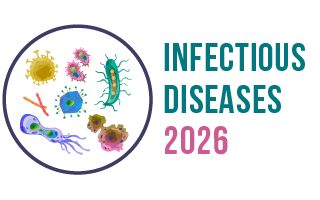4th International Conference on
Infectious Diseases
September 09-10, 2026 | Barcelona, Spain

Address: Avinguda Del Maresme 78 Ronda De Dalt Exit 15, 08940 Comella de Llobregat, Barcelona, Spain
Epidemiology and Surveillance of Infectious Diseases
Epidemiology and surveillance play a crucial role in understanding how infectious diseases emerge, spread, and impact populations. Through systematic data collection, analysis, and interpretation, epidemiologists identify risk factors, transmission patterns, and outbreak trends. This knowledge helps public health authorities detect early warning signs and implement timely interventions to reduce disease burden.
Modern surveillance systems integrate laboratory diagnostics, digital reporting technologies, and community-based monitoring to improve accuracy and speed. These tools support outbreak investigation, guide vaccination strategies, and inform policy decisions. Strengthening epidemiological capacity is essential for global preparedness, enabling countries to respond effectively to both endemic diseases and sudden epidemic threats.
- Tracks disease patterns and transmission.
- Supports early outbreak detection.
- Uses data for public health decisions.
- Guides prevention and control measures.
